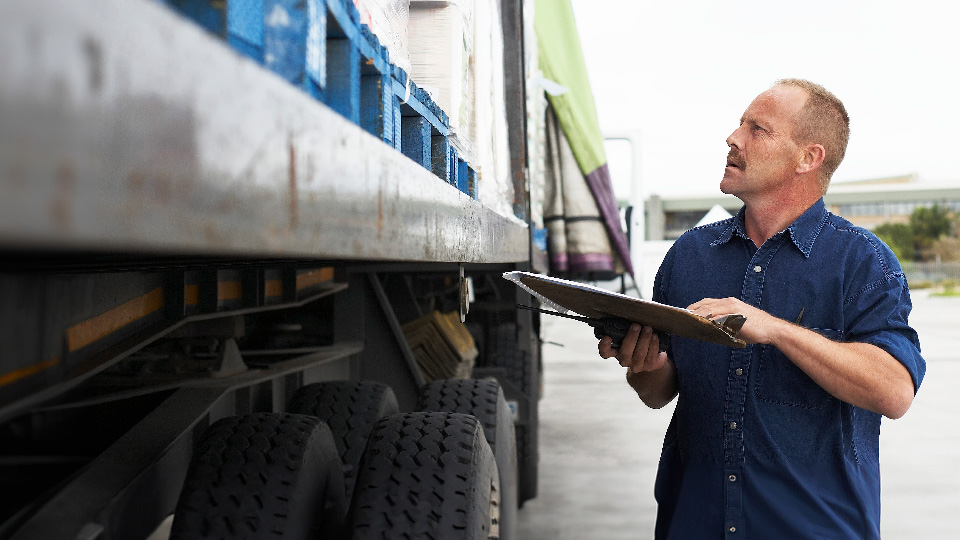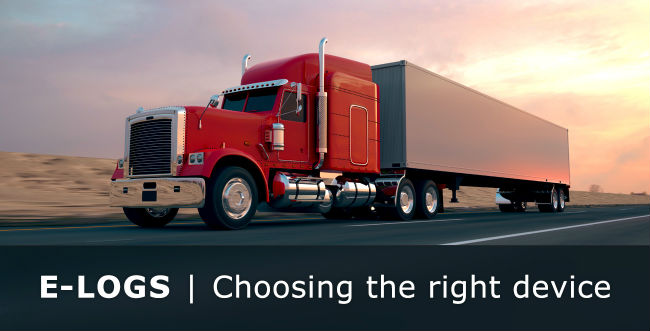Are AOBRD devices still compliant?
Unsure if your AOBRD devices are still compliant? Learn the difference between an AOBRD, EOBR and ELD and read about current regulations.

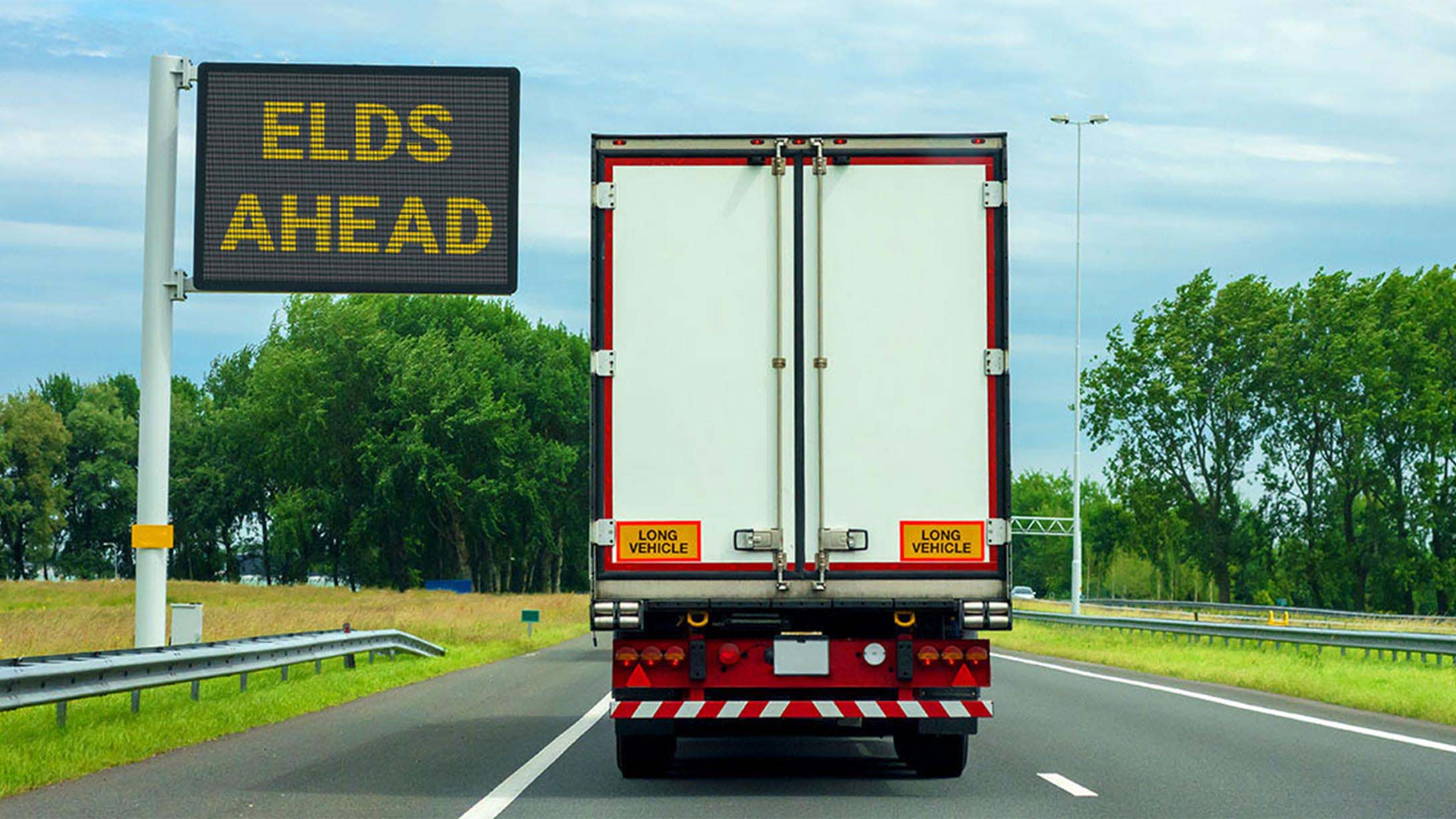
ELD or AOBRD? Are AOBRD devices are still compliant now that the Electronic Logging Device (ELD) Mandate has gone into effect? In this article, we outline the basics on AOBRDs.
What are AOBRD devices?
An AOBRD, or Automatic On-Board Recording Device, is an electronic device that records a driver’s Hours of Service as laid out in the U.S. Hours of Service of Drivers regulations Section § 395.15 by the Federal Motor Carrier Safety Administration (FMCSA).
What’s the difference between an AOBRD and ELD?
There are a number of important technical differences between AOBRDs and ELDs, specifically, the features and functions.
How ELDs differ from AOBRDs:
- Internal synchronization is more clearly defined.
- Requires recording of location information of the commercial motor vehicle each duty status change, plus every 60 minutes while the vehicle is in motion.
- Graph grid of driver’s duty status changes is required (display or printout).
- Must provide warning of unassigned driving time/miles when driver logs in.
- Default to on-duty not driving status when the vehicle has stopped for five consecutive minutes and no driver response to ELD prompt.
- Synchronization to Universal Coordinated Time (UTC).
- Enhanced resistance to tampering.
AOBRD, EOBR & ELD definitions
You may see a few different terms used in relation to keeping records of duty status (RODs), including AOBRD, EOBR and ELD. Here is a quick definition of each term and the related regulations.
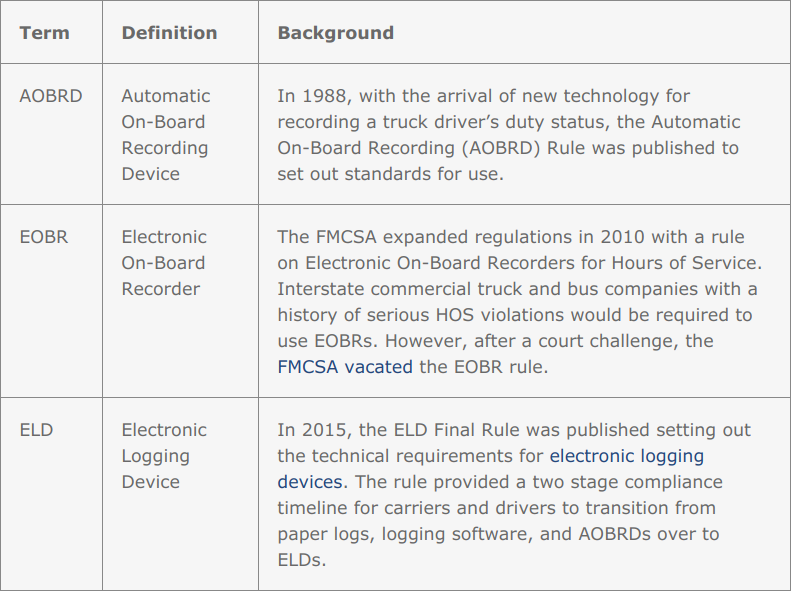
Can carriers still use AOBRDs?
Many fleets are asking: Is there a grace period for ELDs? Yes, but the gap is closing fast. The phased-in compliance period is coming to an end on December 16, 2019.
In Phase 2 of the ELD timeline, carriers that had installed AOBRDs were grandfathered in and allowed to use their devices.
During this time, to be considered compliant, grandfathered AOBRDs must:
- be installed by the motor carrier and rolled out before the ELD compliance deadline of December 18, 2017
- meet the requirements of U.S. Hours of Service regulations, section 395.15
However, all this changes as of December 2019. Once the Full Compliance Phase begins, motor carriers and drivers subject to the ELD rule will need to use self-certified, registered ELDs.
Can a carrier purchase and install a new AOBRD device?
The FMCSA allows carriers to move AOBRDs previously installed before December 16, 2017 and updated over-the-air to other vehicles.
Further clarity is provided in the FMCSA’s answer: “However, you may not purchase and install a new AOBRD in a vehicle after December 18, 2017.”
Again, keep in mind that as of December 16, carriers can only use ELDs going forward.
Can a company switch to a new AOBRD provider?
This is a popular misconception. Carriers cannot switch to a new AOBRD provider. Even if a carrier’s current AOBRD system has been grandfathered in, that carrier cannot replace it with a new AOBRD provider’s system.
Bill Quade, FMCSA Associate Administrator for Enforcement stated in an email communication to Geotab:
“FMCSA has a Frequently Asked Question that allows a motor carrier that was using AOBRDs before December 18, 2017 to add devices that are ELD-capable, but running AOBRD software during the ELD/AOBRD transition period. This FAQ was drafted to allow carriers with established AOBRD programs to be able to add vehicles to their existing logging systems without having to run part of the fleet on AOBRD software and part on ELD software. A carrier that changes vendors entirely no longer has a legacy AOBRD system that needs to be accommodated so they do not qualify to install non-ELD devices after the December 18, 2017 date.”
The answer to this FAQ will only be applicable until December 16, 2019 where all carriers will need an ELD.
Are all ELD providers equal?
Many ELD vendors are still running AOBRD platforms and don’t plan on switching fleets over to ELD until Q4 of 2019, when required. This raises the concern that some vendors may not transition effectively to the new, more complex and thorough requirements for ELD devices. Before bringing any solution to market, time is required for proper testing, resolving any issues, and improvement. When it comes to electronic logging and roadside transfer especially, your business needs a reliable solution.
Early on, Geotab made the decision to only provide an ELD solution as of December 18, 2017, and did not offer an AOBRD solution. We spent more than 18 months focused on ELD and building a robust system. Geotab works closely with FMCSA and regularly connects with customers to continually gather feedback and enhance the ease of use of the system. Early adopters have had more than a year and a half running Geotab’s Cloud ELD solution, and are well versed and operating smoothly in their everyday life and during roadside inspections.
We encourage other fleets to take a critical look at vendor qualifications like years in business, ranking and security, when picking their ELD solution.
Get more tips on picking the best ELD provider in this post.
ELDs only after December 16, 2019
The use of grandfathered AOBRDs is limited and coming to an end. The Full Compliance Phase of the ELD rule begins on December 16, 2019. After this date, drivers and motor carriers are must use self-certified ELDs. AOBRDs, logging software and paper logs will all be phased out at this point. For a full explanation on ELD self-certification, see this post.
ELDs have ushered in a new data-driven era in trucking. With new capabilities in vehicle tracking and integration, carriers can expect benefits in fleet compliance, efficiency, and improved customer satisfaction and driver safety.
Find more ELD learning resources at geotab.com/eld/.
Related:
ELD Exemptions: Frequently Asked Questions on the ELD Mandate
ELD Tips for Drivers: Going from Paper Logs to Electronic
While Geotab recognizes our place as a self-registered ELD manufacturer and provider and we will answer questions regarding those Hours of Service (HOS) ruleset options we provide, neither Geotab nor any of its employees, officers or agents can offer legal advice to any resellers or customers concerning which HOS ruleset(s) or exemption(s) may apply to any particular situation. Please contact your local DOT department or refer to the FMCSA website at https://www.fmcsa.dot.gov/ for questions Geotab is unable to answer.
Originally published January 11, 2018. Updated March 8, 2019.
Subscribe to get industry tips and insights

Brent McInnis is a Product Engineer for Geotab.
Table of Contents
Subscribe to get industry tips and insights
Related posts
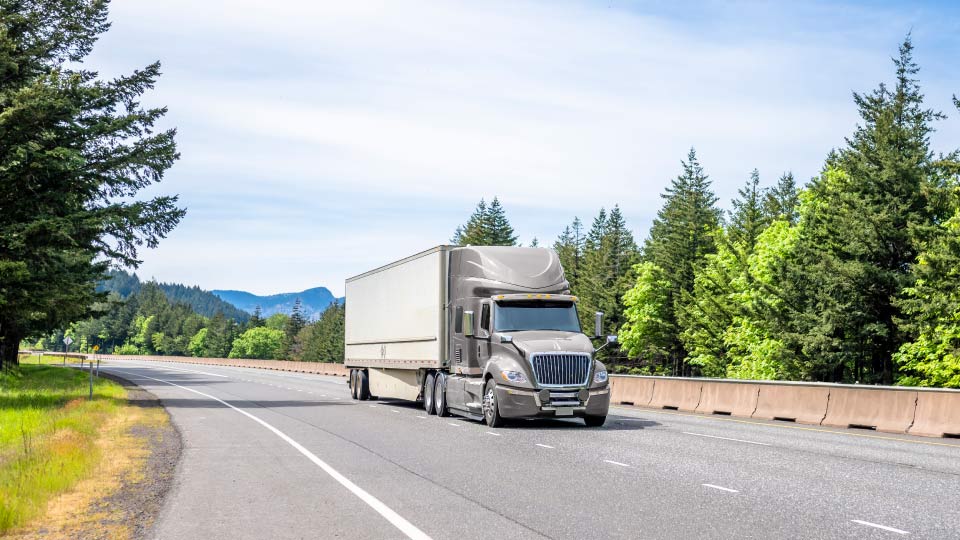
Clean Truck Check: How to comply with California's standards [2025]
January 26, 2025
4 minute read

FIPS 140-3 validation: What it is and what it means for Geotab customers
December 18, 2024
2 minute read

